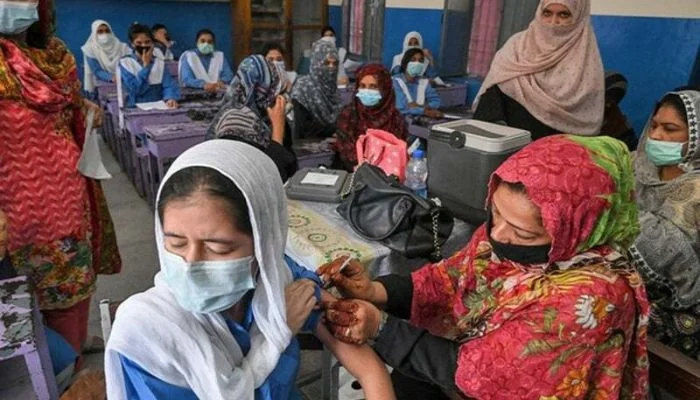ISLAMABAD, June 22(ABC): After nearly a five-month hiatus since the last wave of coronavirus, the infection is rearing its head again in Pakistan, with a nationwide positivity rate of 1.53%, according to the latest data by the National Institute of Health Sciences.
According to the NIH, 204 more people have tested positive for coronavirus in the last 24 hours after 13,300 tests were conducted.
According to the National Command and Operation Center’s (NCOC) figures, the country went through the fifth wave of COVID-19 in January 2022, with the highest number of cases — 7,963 — on January 27 and recorded 30 deaths.
‘Sindh is most affected’
According to health department officials, Karachi is the most affected part of Sindh, with 340 positive cases in seven days, raising the positivity rate to 10.69%.
During the same time period, 1,841 tests were performed in Hyderabad, with two cases returning positive results.
In the rest of Sindh, a total of 9,892 tests were conducted, with 34 of them coming back positive.
The new spike
Dr Faisal Mahmood, an associate professor of infectious diseases at the Aga Khan University, told Geo.tv that the spike is likely due to a combination of factors, including “the introduction of the new variant BA.4 and BA.5, which can cause reinfections, increased travel — especially to Saudi Arabia for Umrah and Turkey for vacations — as well as the fact that six months have passed since the last booster, and that people have stopped wearing masks.”
He stated that identifying the number of positive cases is difficult because many people do not go for COVID-19 tests if their symptoms are mild. And because people are not taking the PCR test and instead use home testing kits that cannot be recorded, the number of cases is far greater than the number of reported cases.
He stated that hospitalisation has increased, though not as much as it did during the Delta wave, but that some patients with severe symptoms have started to show up at hospitals, which is concerning.

